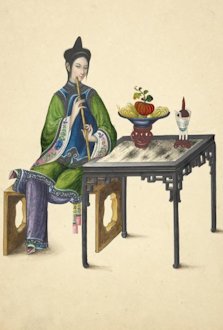
Among the many genres of Chinese music is a form of music drama often called Chinese opera. Formerly these operas were based on old tales of heroes and the supernatural. Today the stories often deal with heroes of the Communist revolution or with great historical events of the recent past. The first fully developed form of Chinese opera, called northern drama, or beiqu, emerged during the Yuan dynasty (1279-1368). During the Ming (1368-1644) and Qin (1644-1912) dynasties, southern drama, also called xiwen, flourished and underwent much stylistic development. The variety of Chinese opera known as Peking opera, jingxi, is the most familiar in the West. It developed in the 19th century as a synthesis of earlier provincial forms.
During the first half of the 20th century Chinese music was considerably influenced by the music of the West. Three major schools of thought arose in response to this influence. The first school aimed at reviving the old thousand-piece orchestras that once delighted ancient princes and sages and resisted the influence of Western music. The second school concerned itself almost exclusively with Western music. The last school of Chinese music took great pride in traditional Chinese musical culture but did not hesitate to apply it to Western techniques of composition and performance.